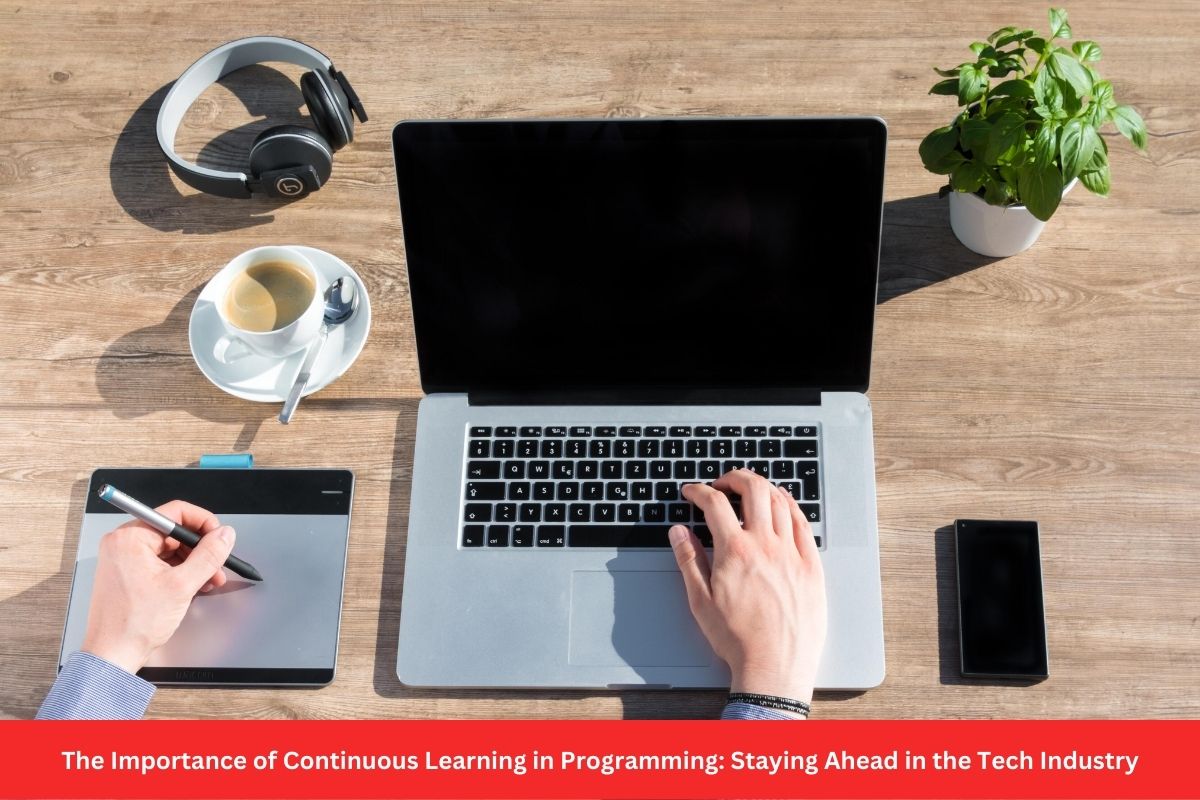Whether you’re a boot camp graduate or have worked in the tech industry for years, continuous learning is essential. Keeping up with programming languages, frameworks, and trends is crucial to stay competitive in technology.
Developers who don’t regularly learn new skills will quickly fall behind and likely leave the company for another role. To support their growth, companies should invest in a continuous learning culture.
Many benefits appear alongside continuous learning, and we’re going to tell you about them right now:
Staying Ahead of the Curve
Continuous learning is essential if you want to remain relevant in the tech industry. New technologies and programming languages emerge regularly, and keeping up with these changes can be challenging. You can code perfectly in Python, Java, and C++, but new programming languages Swift and Kotlin may be complicated, especially if you are only starting to learn them. Remember that getting valuable assistance with coding tasks or, in other words, asking for help with programming homework is a great and time-saving solution.
You can practice continuous learning through various methods, including taking classes, observing more experienced employees, studying, and casual conversation. Making it a habit and incorporating it into your daily routine is essential. Managers can encourage this by offering flexible schedules, encouraging employees to participate in outside training programs, and recognizing their efforts.
Continuous learning also opens up new opportunities for career advancement. It can help you obtain a promotion or increase in salary, and it shows your boss that you are willing to go the extra mile for your company. In addition, it can give you the skills you need to advance to a leadership role.
To summarize, continuous learning helps you stay ahead of the curve and develop innovative ideas to set you apart from competitors.
Getting Out of Your Comfort Zone
Stepping out of your comfort zone can be scary and uncomfortable, but it is necessary for growth. You can begin by introducing yourself to people you don’t know, taking a different route to work, or trying a portion of new food. Over time, these steps will feel more comfortable and become a regular part of your life.
The best employees look for a company that prioritizes development opportunities. It’s a key selling point when recruiting candidates and a significant factor in employee retention. A continuous learning program lets employees stay updated with industry best practices and trends.
This training can include formal learning, such as a new software update or seminar, but it can also be more informal, such as a webinar or reading current articles. Making the learning process as convenient as possible for your team is crucial, which is why microlearning and mobile courses are a great choice. These short courses are easy to access on a mobile device and can be completed quickly.
Developing a Growth Mindset
Developing a growth mindset can help you overcome obstacles and advance your career. Whether you’re a junior, mid, or senior software engineer, learning new things is essential to staying competitive in your specialized field. This can also help you build robust skills and gain a more well-rounded perspective.
A growth mindset believes that your essential qualities, like intelligence and abilities, are not fixed but can be improved with hard work and effort. Those with this mindset will often choose to embrace challenges and welcome feedback.
Developing this mindset can be achieved through reading books, listening to podcasts, or looking for examples in your own life. Programming, in particular, is an excellent way to develop this mindset because it naturally involves trying things out, getting feedback, and tweaking code to get the desired results. This teaches students that they should not fear failure but instead view it as part of the process.
Developing a Routine
A routine is a repeated sequence of actions that minimizes the amount of decision-making and planning. It’s like a habit or pattern you follow daily without even thinking about it. A singer has a daily singing routine, and dancers have their unique dancing routines that they practice and perfect regularly.
Developing a routine when learning will help to predetermine your schedule and prioritize the activities you need to do daily. This will also free up time that would have been spent on planning and decision-making. Developing a routine will make it easier to stick with the training program over the long term.
Summary
Continuous learning is the process of regularly acquiring new knowledge and skills on an ongoing basis. This can be done through formal courses, shadowing teammates, training programs, one-on-one coaching, and informal learning such as reading, casual conversation, and self-initiated projects. This helps employees remain malleable to market changes and keeps them engaged.
